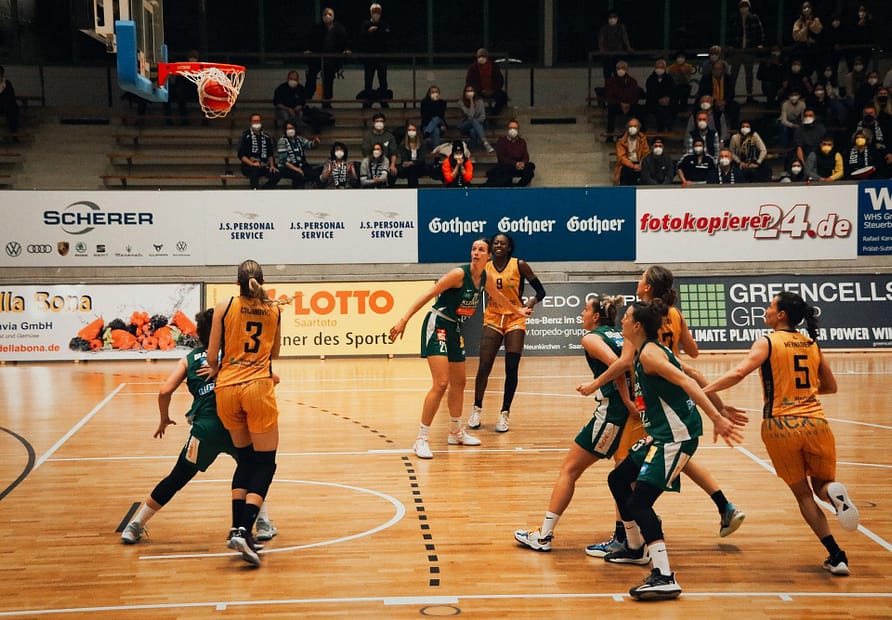When it comes to personal fouls and team fouls in basketball, there is a big difference. Personal fouls are committed by an individual player and result in that player being removed from the game for a set amount of time. Team fouls, on the other hand, are committed by the team as a whole and do not result in any players being removed from the game.
As a basketball fan, you may have heard announcers talk about personal fouls and team fouls, but what is the difference?
A personal foul is when a player commits an illegal action against another player. This can include things like hitting, kicking, pushing, or holding.
A team foul is when a team accumulates a certain number of personal fouls in a single game.
The number of team fouls varies depending on the league. In the NBA, for example, each team is allowed six team fouls before the other team goes to the free throw line.
Once a team reaches seventeam fouls in a quarter or tenteam fouls in a half, the opposing team gets to shoot free throws on every subsequent Personal Foul committed by that team for the rest of that period.
So while both personal and Team Fouls are penalized with free throws, they work differently towards those free throws being awarded. Knowing this difference can help you better understand and enjoy watching basketball!
What is a Team Foul In Basketball Rules?
What are Team Fouls?
In basketball, a team foul is any foul committed by a player on that team. The number of team fouls is tracked throughout the game, and once a team reaches a certain number of team fouls, the opposing team is awarded free throws.
The number of free throws awarded to the opposing team depends on the league.
In the NBA, for example, if a team commits six or more fouls in a half, the opposing team is awarded one free throw for each subsequent fouled player. If the fouling team has already reached bonus free throw territory (meaning they’ve already committed seven or more fouls in the half), then the number of free throws goes up to two per subsequent fouled player. Once again, this only applies if the game is being played under NBA rules; other leagues have different rules regarding how many free throws are awarded forteam fouls.
It’s important to note that not all personal fouls are counted as team fouls. Only those personal fouls that are committed by players on the court count towards their respective teams’ total number ofteamfouls for that game.
Does a Team Foul Count As a Personal Foul?
A team foul is counted as a personal foul if it results in the opposing team being awarded free throws. If the team foul occurs while the ball is in play, and no free throws are awarded, then it is not counted as a personal foul.
What Fouls Count As Team Fouls?
In basketball, a team foul is any foul committed by a player on that team. The term is important because it determines how many free throws the opposing team will get. After a certain number of team fouls in a half, the other team gets to shoot free throws.
There are two types of team fouls: personal and technical. Personal fouls include all the regular infractions, such as shooting fouls, blocking fouls, and offensive fouls. Technical fouls are usually related to unsportsmanlike conduct, such as arguing with a referee or using profanity.
The number of free throws awarded for each type of team foul varies depending on the league and level of play. In the NBA, for example, each personal fouL results in one free throw for the opposing team. But if a technical foul is committed during live ball play, the other team gets two free throws plus possession of the ball (unless it’s already in their possession).
It’s important to note that not all personal or technical fouls automatically count as team fouls. For instance, if a player commits an intentional or flagrant personal fouL against an opponent, it doesn’t count towards his own team’s total for that half – instead, the opposing player gets to shoot two or three free throws (depending on which type of flagrant fouL it was). The same goes for technical fouLs: if they’re assessed to a head coach or non-playing personnel like bench players or assistant coaches, they don’t add to the total number ofteam fouLs for that half.
What are the 3 Types of Fouls?
There are three types of fouls in the sport of basketball: personal, shooting, and technical.
Personal fouls are committed when a player makes contact with an opponent in a way that is not allowed by the rules. This can include things like hitting, pushing, or holding.
If a player commits too many personal fouls during a game, they will be fouled out and have to leave the court.
Shooting fouls occur when a player is fouled while shooting the ball. This can happen if an opposing player hits them while they are in the act of shooting, or if they are fouled on their follow through after shooting.
If a player is fouled while shooting and they make their shot, they will receive free throws according to how many points the shot was worth.
Technical fouls are given for various rule violations such as unsportsmanlike conduct or having too many players on the court. Technical fouls usually result in free throws for the opposing team as well as possession of the ball after the free throws have been taken.

Credit: basketballword.com
Team Foul Vs Personal Foul
When it comes to basketball, there is a big difference between a team foul and a personal foul. A team foul occurs when one of the players on the court commits a foul against an opponent. This can include anything from blocking to tripping.
On the other hand, a personal foul is committed by an individual player and is not related to any other players on the court. Personal fouls can include things like elbowing or hitting another player.
Conclusion
A personal foul is a penalty in basketball that is committed by a player against another player. A team foul is a penalty that is committed by a team against the opposing team. The main difference between personal fouls and team fouls is that personal fouls are penalized with free throws, while team fouls are not.
Emma, the founder of The Info Book, started with a passion for Blogging in 2013. She has continued her passion for Blogging and desire to improve her skills and wanted to share her journey and helpful knowledge with other like-minded individuals.
She launched The Info Book as an outlet for those interested in learning more about topics like automotive, sports in hopes that other’s can take what she learn and apply it for themselves!
